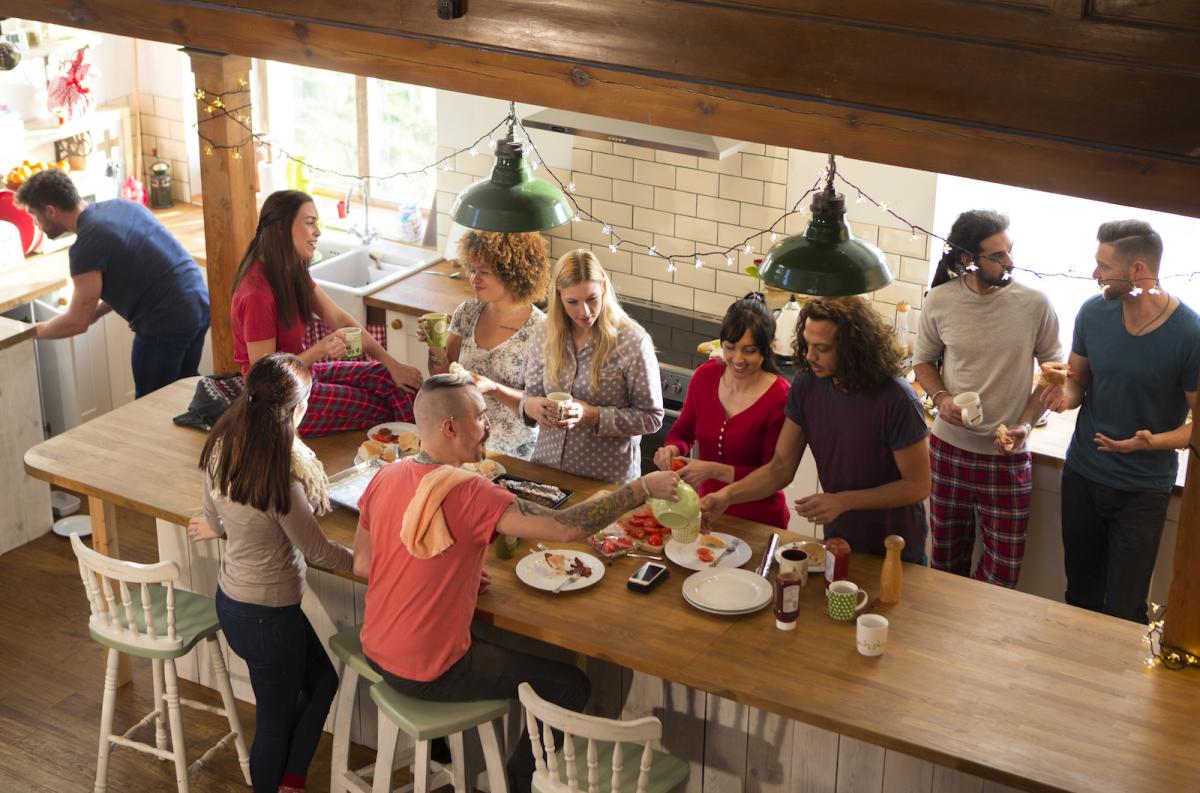As the year winds down, folks across the country are headed home for the holidays to spend time with family and friends. While this is a time of celebration for many, it also presents challenges for some survivors of sexual abuse.

More often than not, the perpetrator of sexual violence is someone the victim knows. This is especially true for those who experience sexual abuse as a child: 93 percent of children know the perpetrator, and 34 percent are abused by a family member. For these survivors, holiday gatherings can mean facing painful memories, feelings of anxiety, or a chance of repeated harm.
During the holiday season, RAINN support specialists for the National Sexual Assault Hotline anticipate helping survivors who are going through a tough time at home or during family gatherings. Here, they share some strategies to help survivors feel safe.
1. Identify alternative housing plans. Survivors who have flexible schedules during the holidays can stay in different places to avoid being in the family home or location where the abuse occurred.
- Consider staying with a friend or non-offending family member.
- Plan a mini-vacation or side trip during the time you would be asked to stay with family.
- Offer to join for family gatherings, but stay in an offsite location, like a motel or hostel (if finances allow). If you are concerned about ongoing safety, keep this location private from the perpetrator.
2. Try to avoid close quarters. For many survivors, family pressures or traditions do not permit them to stay outside the family home. In this situation, survivors can brainstorm ways to avoid the perpetrator during gatherings.
- Make plans that involve leaving the home for an extended period of time, such as volunteering, catching up with old friends, or offering to run errands for the household.
- Think of possible excuses, such as having conflicting plans or needing rest, for not attending events where the offender will be present.
- If it makes you feel safer, stick to common areas and public places within the home or building, such as a living room or kitchen, and try to avoid secluded areas.
- Avoid talking to, sitting near, or standing around the person who hurt you. It’s okay to draw boundaries, even if makes other family members uncomfortable.
3. Reach out to a neutral party. Survivors may feel isolated because of patterns of not being believed, fear of disclosing, or concerns about creating family tensions or division. Sometimes, it can be easier to talk to a neutral third-party that can offer support.
- Reach out to the National Sexual Assault Hotline by phone (800.656.4673) to be connected with a local sexual assault service provider, or chat online with someone who is trained to help.
- Download safety planning or meditation apps for a smartphone or tablet to help with stressful times.
- Read through recovery tips from RAINN, like Self-Care After Trauma and Tips for Survivors on Consuming Media.
- If you are in imminent danger, call 911.
4. Make a plan. Mapping out a game plan for family gatherings—in advance—can help survivors feel safe, comfortable, and prepared.
- Think through logistics. Does this plan require a car or other transportation? Will you need to arrive or depart the family gathering at a certain time?
- Consider how to talk to family if tensions arise. Not everyone is ready or able to disclose what happened—and that’s OK. Make a plan for how to answer tough questions or diffuse a tense situation.
If your safety plan falls through, or if you experience harm, know that you have done nothing wrong. You deserve support. The National Sexual Assault Hotline is free, confidential, and available 24/7: 800.656.HOPE (4673) and online.rainn.org